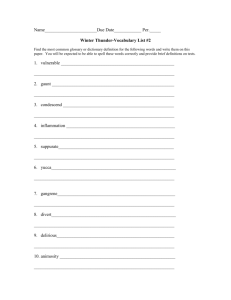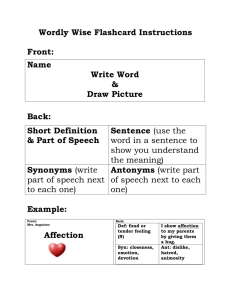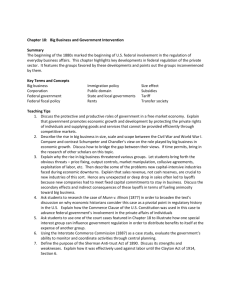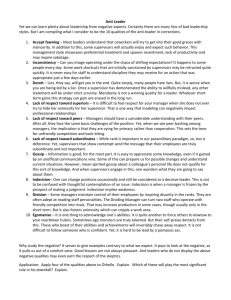Proceedings of 10th Asia - Pacific Business and Humanities Conference
advertisement
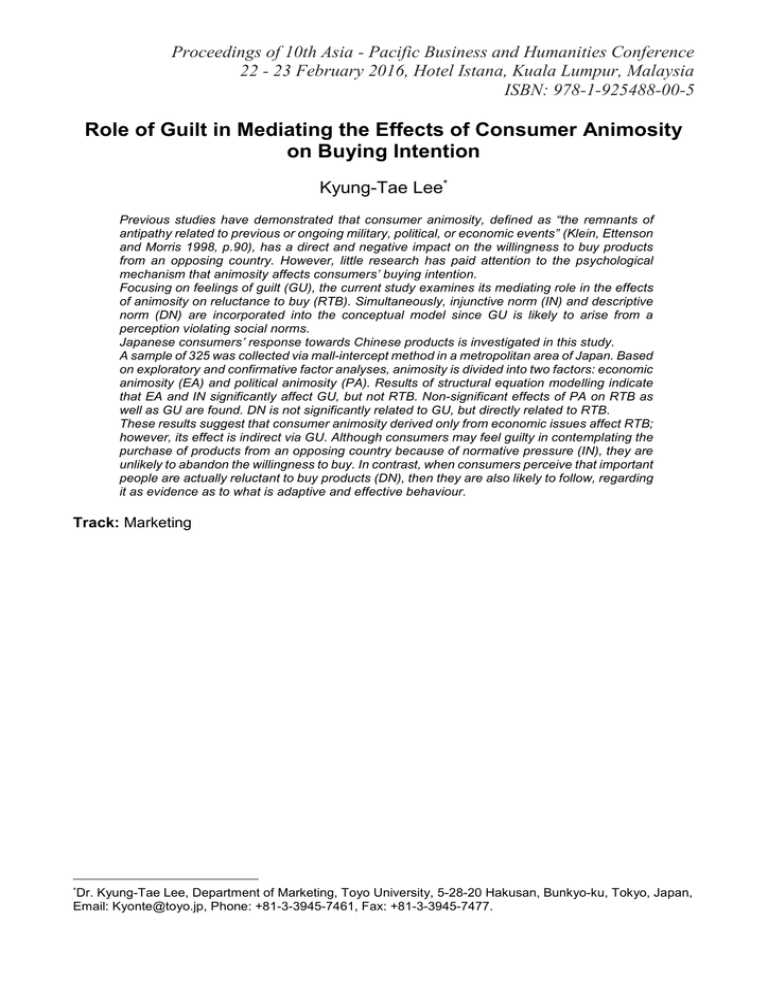
Proceedings of 10th Asia - Pacific Business and Humanities Conference 22 - 23 February 2016, Hotel Istana, Kuala Lumpur, Malaysia ISBN: 978-1-925488-00-5 Role of Guilt in Mediating the Effects of Consumer Animosity on Buying Intention Kyung-Tae Lee* Previous studies have demonstrated that consumer animosity, defined as “the remnants of antipathy related to previous or ongoing military, political, or economic events” (Klein, Ettenson and Morris 1998, p.90), has a direct and negative impact on the willingness to buy products from an opposing country. However, little research has paid attention to the psychological mechanism that animosity affects consumers’ buying intention. Focusing on feelings of guilt (GU), the current study examines its mediating role in the effects of animosity on reluctance to buy (RTB). Simultaneously, injunctive norm (IN) and descriptive norm (DN) are incorporated into the conceptual model since GU is likely to arise from a perception violating social norms. Japanese consumers’ response towards Chinese products is investigated in this study. A sample of 325 was collected via mall-intercept method in a metropolitan area of Japan. Based on exploratory and confirmative factor analyses, animosity is divided into two factors: economic animosity (EA) and political animosity (PA). Results of structural equation modelling indicate that EA and IN significantly affect GU, but not RTB. Non-significant effects of PA on RTB as well as GU are found. DN is not significantly related to GU, but directly related to RTB. These results suggest that consumer animosity derived only from economic issues affect RTB; however, its effect is indirect via GU. Although consumers may feel guilty in contemplating the purchase of products from an opposing country because of normative pressure (IN), they are unlikely to abandon the willingness to buy. In contrast, when consumers perceive that important people are actually reluctant to buy products (DN), then they are also likely to follow, regarding it as evidence as to what is adaptive and effective behaviour. Track: Marketing *Dr. Kyung-Tae Lee, Department of Marketing, Toyo University, 5-28-20 Hakusan, Bunkyo-ku, Tokyo, Japan, Email: Kyonte@toyo.jp, Phone: +81-3-3945-7461, Fax: +81-3-3945-7477.
